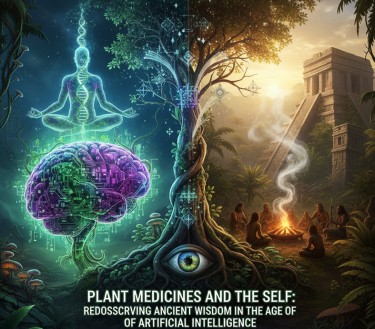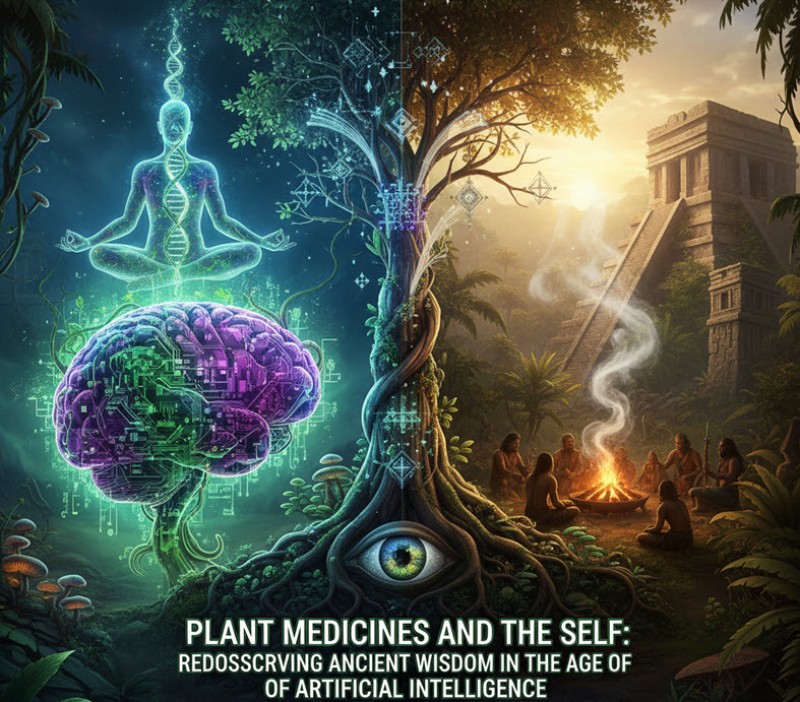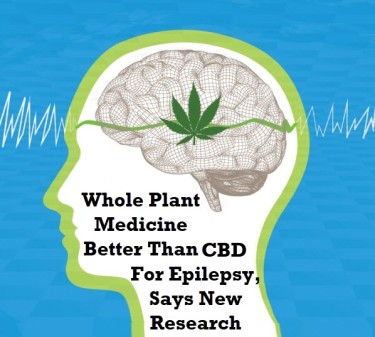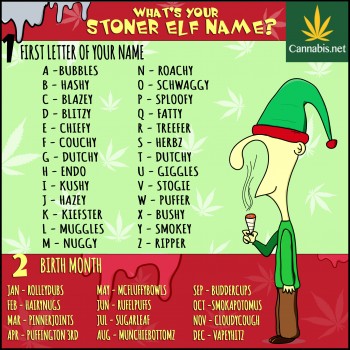
For tens of thousands of years, humans have turned to plant medicines as gateways to understanding the deeper mysteries of consciousness and existence. From the sacred mushroom ceremonies of ancient Mesoamerica to the ayahuasca rituals of Amazonian shamans, from the peyote visions of Native American tribes to the cannabis sacraments of ancient Hindu traditions, plant medicines have served as humanity's oldest and most reliable tools for consciousness exploration and spiritual awakening.
Some researchers, most notably ethnobotanist Terence McKenna, have proposed that psychedelic mushrooms may have catalyzed the rapid evolution of human consciousness itself - the mysterious leap from primitive hominids to language-using, tool-making, spiritually-aware beings that occurred over a relatively brief period in evolutionary history. While this "stoned ape hypothesis" remains scientifically unproven, it highlights the profound relationship between altered states of consciousness and human development.
What's undeniable is that altered states of consciousness are woven into the fabric of human experience. We access them naturally through dreams, meditation, breathwork, fasting, dancing, and countless other practices. Plant medicines simply provide one of the most direct and reliable pathways to these non-ordinary states that have shaped human culture, spirituality, and self-understanding throughout history.
But in our modern era of disconnection from nature and traditional wisdom, many people have lost the knowledge of how to work with these powerful tools effectively. They approach plant medicines as recreational drugs rather than sacred technologies for consciousness exploration. They ignore the fundamental principles of set and setting that determine whether these experiences will be transformative or traumatic. Most critically, they lack the systematic framework necessary to integrate insights and navigate the complex territory of self-discovery that plant medicines can reveal.
As we enter an age of artificial intelligence and rapid technological change that will reshape every aspect of human existence, the need for effective consciousness exploration tools has never been greater. We're facing a firmware update of human consciousness itself, and plant medicines - when used within proper frameworks - offer invaluable assistance in navigating this transformation and discovering who we truly are beneath the layers of cultural conditioning and false beliefs.
The Great Work: Uncovering the Authentic Self
Magicians and mystics throughout history have referred to the process of self-discovery and spiritual development as "The Great Work" - the systematic uncovering of one's authentic nature beneath the accumulated layers of cultural programming, family conditioning, and false beliefs that obscure our true identity. This isn't therapy or self-help; it's archaeology of the soul, carefully excavating the authentic self from beneath decades of imposed identities and borrowed beliefs.
Most people live their entire lives wearing masks that were created by others - parents, teachers, religious authorities, cultural institutions, and social pressures that shape how we think we should be rather than who we actually are. These imposed identities serve social functions but often conflict with our deeper nature, creating internal friction, dissatisfaction, and a persistent sense that something essential is missing from our lives.
Plant medicines can serve as powerful allies in The Great Work by temporarily dissolving the ego structures that maintain these false identities, allowing direct experience of consciousness unconditioned by cultural programming. Cannabis can provide gentle introspection and perspective shifts that reveal habitual thought patterns and emotional reactions. Psilocybin mushrooms can generate profound mystical experiences that demonstrate the illusory nature of the separate self. Ayahuasca can facilitate deep psychological healing by bringing unconscious material into conscious awareness. Peyote and other cacti can produce sustained altered states that allow extended exploration of consciousness and meaning.
But the key word here is "can." Plant medicines don't automatically produce self-discovery or spiritual awakening. They're tools that amplify whatever intentions, preparation, and framework you bring to the experience. Without proper preparation and integration, they can just as easily reinforce delusions, create spiritual bypassing, or generate traumatic experiences that actually impede personal growth.
The difference between transformative plant medicine work and recreational drug use lies in approach, intention, and systematic methodology. Transformation requires treating these substances as sacred technologies that demand respect, preparation, and ongoing integration work rather than as chemicals that produce interesting states of consciousness.
The Pitfalls of Unconscious Plant Medicine Use
After more than twenty years as a psychonaut and consciousness explorer, I've observed the common mistakes that prevent people from accessing the transformative potential of plant medicines. These errors don't just limit the benefits of the experience - they can actually reinforce the very patterns of conditioning and false identity that authentic spiritual work seeks to dissolve.
The most fundamental mistake is approaching plant medicines as the source of wisdom rather than as amplifiers of consciousness that reveal wisdom that already exists within. When people become attached to the substances themselves rather than the insights they facilitate, they develop what I call "plant materialism" - the belief that external substances contain the answers to internal questions.
Set and setting violations represent another category of common errors. Set refers to your mental and emotional state going into the experience, while setting refers to the physical and social environment where the experience occurs. Taking plant medicines while emotionally unstable, in chaotic environments, or without proper preparation frequently produces challenging experiences that discourage further exploration rather than facilitating growth.
Lack of integration is perhaps the most widespread problem in contemporary plant medicine use. Many people have profound experiences during altered states but fail to translate those insights into lasting changes in their ordinary consciousness and daily life. They return from mystical experiences and gradually slip back into the same patterns of thinking and behavior, treating the experience as a temporary vacation from reality rather than a glimpse of deeper truth.
Frequency mistakes are equally problematic. Some people take plant medicines too frequently, never allowing time for integration and habituation that reduces their effectiveness. Others take them too infrequently to build the momentum necessary for sustained transformation. Finding the optimal frequency requires careful attention to your responses and honest assessment of your integration progress.
Perhaps most dangerously, many people use plant medicines to reinforce existing beliefs and biases rather than to examine and potentially dissolve them. They interpret experiences through the lens of their current belief systems, using altered states to confirm what they already think they know rather than to discover what they don't know they don't know.
These approaches turn potentially transformative tools into elaborate forms of spiritual entertainment that may feel meaningful in the moment but produce little lasting change in consciousness or behavior.
The Systematic Approach: Framework for Consciousness Exploration
Effective consciousness exploration requires systematic methodology that provides structure for preparation, experience, and integration. Without proper framework, plant medicine work becomes random experimentation that may occasionally produce insights but lacks the consistency and progression necessary for sustained transformation.
A systematic approach begins with honest self-assessment and clear intention-setting. What aspects of yourself do you want to explore or transform? What patterns of thinking, feeling, or behaving no longer serve your authentic development? What questions about consciousness, meaning, or purpose do you want to investigate? Setting clear intentions provides direction for the experience and criteria for evaluating insights.
Preparation involves both practical and psychological elements. Practical preparation includes optimizing set and setting, ensuring safety measures, and arranging appropriate integration time. Psychological preparation involves cultivating the mental states and attitudes that support transformative experiences: openness, courage, humility, and willingness to encounter uncomfortable truths about yourself.
During the experience itself, systematic approach means maintaining witness consciousness - the ability to observe your thoughts, emotions, and perceptions without complete identification with them. This observer awareness allows you to gather information about how your consciousness operates rather than simply being swept away by interesting visual or emotional content.
Integration represents the most crucial phase of systematic plant medicine work. This involves translating insights from altered states into practical changes in ordinary consciousness. Effective integration requires specific practices: journaling to capture insights, meditation to maintain access to expanded awareness, behavioral experiments to test new ways of being, and ongoing self-reflection to monitor progress.
The systematic approach also includes objective criteria for evaluating progress. Rather than relying on subjective feelings about whether experiences were "good" or "meaningful," systematic work measures transformation through observable changes in patterns of thinking, emotional reactivity, behavioral choices, and relationship dynamics.
The Ruthless Awakening: A Framework for the Age of AI
Recognizing the need for systematic approaches to consciousness exploration in our rapidly changing world, I developed a comprehensive framework called "The Ruthless Awakening" - a methodical approach to deconstructing false identities and reconstructing authentic selfhood from the ground up.
The Ruthless Awakening provides tools for distinguishing between subjective interpretations and objective realities, between cultural conditioning and authentic insights, between spiritual bypassing and genuine transformation. It offers specific practices for identifying and dissolving limiting beliefs, recognizing and transcending emotional patterns, and developing the discernment necessary to navigate complex psychological territory.
This framework treats plant medicines as valuable but optional tools within a larger system of consciousness development. Rather than depending on substances for access to non-ordinary states, participants develop multiple pathways to expanded awareness while learning to use plant medicines more effectively when they choose to include them in their practice.
The methodology emphasizes ruthless honesty about self-deception, systematic approaches to belief examination, and practical methods for integrating insights into daily life. It provides objective criteria for evaluating progress and specific techniques for maintaining momentum through the challenging work of authentic self-discovery.
Most importantly, The Ruthless Awakening prepares participants for the rapidly changing world we're entering - an age where artificial intelligence will reshape every aspect of human existence and traditional belief systems will prove inadequate for navigating unprecedented challenges and opportunities.
Evolutionary Spirituality for the AI Age
We're living through a period of unprecedented change that demands new approaches to spirituality and self-understanding. Traditional religious frameworks, designed for agricultural and industrial societies, lack the flexibility and adaptability necessary for the technological age we're entering. Meanwhile, materialist worldviews that deny the importance of consciousness and meaning leave people spiritually impoverished in the face of existential challenges.
What's needed is evolutionary spirituality - adaptive belief systems that grow and develop alongside human consciousness rather than remaining fixed in ancient formulations. This isn't about abandoning all traditional wisdom, but about extracting the essential insights from various traditions while developing new frameworks appropriate for our current evolutionary moment.
Plant medicines can play valuable roles in evolutionary spirituality by providing direct experiences of consciousness that transcend cultural conditioning and reveal universal principles of awareness and interconnection. But they must be used within frameworks sophisticated enough to handle the complexity of modern consciousness development.
The age of AI will require humans to develop new capacities for discernment, creativity, and consciousness navigation. As artificial intelligence handles increasing numbers of cognitive tasks, human value will lie in areas that machines cannot replicate: wisdom, compassion, creativity, and the ability to find meaning in experience.
Plant medicines, used within systematic frameworks, can help develop exactly these capacities. They can enhance creativity by revealing new perspectives and connections. They can deepen compassion by facilitating experiences of interconnectedness and empathy. They can develop wisdom by providing access to non-ordinary states where different types of understanding become available.
Most importantly, they can help people discover their authentic nature beneath layers of cultural programming - knowledge that will become increasingly valuable as traditional social structures and belief systems prove inadequate for the challenges ahead.
The Sticky Bottom Line: Ancient Wisdom for Future Evolution
Plant medicines represent humanity's oldest and most reliable technologies for consciousness exploration, but their effectiveness depends entirely on the wisdom and systematic approach brought to their use. In our current era of rapid change and technological transformation, these ancient tools offer invaluable assistance for those willing to approach them with proper preparation, clear intentions, and commitment to integration.
The key insight is that plant medicines are amplifiers, not sources. They reveal and intensify whatever consciousness you bring to the experience. If you approach them with recreational intentions, they provide recreational experiences. If you approach them with systematic frameworks for self-discovery, they become powerful allies in The Great Work of uncovering your authentic nature.
As we enter the age of artificial intelligence and undergo what amounts to a firmware update of human consciousness, the need for effective tools for self-understanding has never been greater. Traditional belief systems - whether religious or materialist - lack the flexibility necessary for navigating unprecedented changes in human existence.
Evolutionary spirituality, supported by systematic approaches to consciousness exploration, offers a path forward that honors ancient wisdom while remaining adaptive to emerging realities. Plant medicines can serve as valuable tools within this framework, but only when used with the respect, preparation, and systematic methodology they deserve.
The future belongs to those who can navigate consciousness with skill and discernment, who can distinguish between cultural conditioning and authentic insight, and who can maintain psychological flexibility in the face of rapid change. Plant medicines, used wisely within proper frameworks, can help develop exactly these capacities.
But remember: the plant is not the teacher. You are. The medicine is not the source of wisdom. Consciousness is. The experience is not the transformation. Integration is.
The Great Work continues, and ancient allies await those ready to approach them with the wisdom they demand.







